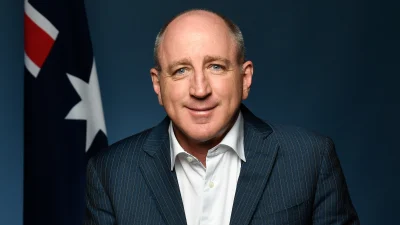BlackRock favours fixed income with central banks poised to ‘overtighten’


Fixed income assets are set to benefit from a prolonged monetary policy tightening cycle, with stubbornly high inflation to quash market expectations of rate cuts later this year, according to BlackRock.
With inflationary pressures showing signs of abating, markets were increasingly expecting a reversal in monetary policy conditions towards the back-end of 2023 as central banks move to stimulate a slowing global economy.
But according to a new BlackRock analysis, the higher interest rate environment was likely to persist beyond market expectations, with inflation to “stay above target” despite rapid easing.
“We see major central banks on a path to overtighten policy because they’re worried about the persistence of underlying core inflation, excluding food and energy prices,” the global wealth giant observed.
The firm pointed to recent personal consumption expenditure (PCE) data from the United States, which suggested the outlook for core inflation “hasn’t improved” and was “tracking to be well above policy targets into 2024”.
“Core services inflation is proving sticky even as goods prices fall. That stickiness is tied to wage pressures in the labour market that we see remaining tight,” the firm continued.
“We think central banks will want more evidence that core inflation and wage pressures are sustainably subsiding before they declare victory on inflation and think about easing policy.
“This will take a long time – and is unlikely to happen this year, in our view."
However, the higher interest rate environment, coupled with political tensions in the US over the raising of the debt ceiling, was expected to make fixed income assets more lucrative for investors.
“We prefer to earn income and like short-term government bonds, high-grade credit and mortgage-backed securities,” BlackRock noted.
The firm said it expected short-term government bonds and investment grade (IG) credit to provide investors with the “highest yields in the last two decades”.
“We prefer to earn income right now from these high-quality fixed income assets as rates rise and stay high,” BlackRock added.
“Fixed income’s appeal remains intact the longer central banks keep rates near their peak”
The returning appetite for fixed income investments follows a steep decline in demand for the asset class over the course of 2022.
Global funds network Calastone recently released findings from its latest Fund Flow Index which revealed a combined 77% year-on-year fall in net inflows reported by managed funds across Australia.
This was down from $35.7 billion in 2021 to $8.3 billion.
Net inflows fell across all asset classes, but fixed income allocations took the biggest hit— down 95%, from $10.5 billion in 2021 to $565 million in 2022.
However, the data suggested investors were regaining confidence in the fixed income asset class over the last quarter of 2022 — attracting higher inflows than equities for the first time since Q1 22.
Recommended for you
Financial advisers nervous about the liquidity of private markets funds for their retail clients are the target of fund managers launching semi-liquid products which offer greater flexibility and redemptions.
Former Pendal head of multi-asset Michael Blayney has been appointed as a member of the investment committee at specialist managed accounts provider Evidentia Group.
Australian Ethical has seen its funds under management surpass $13 billion in the latest quarter, thanks to retail and wholesale net flows of $173 million but a transition project by Mercer affected superannuation flows.
A salary guide has unpacked the salaries earned in various asset classes, with managing directors in one space earning north of $500,000.















